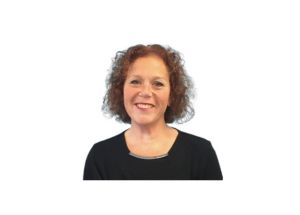Expanding Life-Changing Access to Clinical Trials
By Jennifer Bowers, BSN

I had been a clinical research nurse for 30 years when in the summer of 2018 I was diagnosed with stage III melanoma.
About one in two men and one in three women will experience some form of cancer in their lifetime. Suddenly, I was one of them.
The statistics were scary. The five-year survival rate in 2018 for stage III melanoma was just above 63%. This is an aggressive cancer, so even if I was successfully treated and survived the initial battle, I still faced a high likelihood it would recur or metastasize to other parts of my body.
Would I be in the roughly two-thirds of patients who survived for five more years? The answer to that question hung on more than simple fate. It depended on whether a drug was available that had been proven safe and effective in sending my type of cancer into durable remission.
Access to Therapies
The availability of such a drug depended not only on its development in the lab, but on a series of successful clinical trials designed to show its safety and effectiveness in humans.
When a pharmaceutical company or a clinical researcher decides to engage in a clinical trial, they go to the U.S. Food and Drug Administration (FDA). They present the things they want to look at. The types of people they want to look at. The timeframe. Then, the FDA says yes or no to proceeding with that clinical trial.
Finding the Right People
But what happens if the researcher can’t find enough people to participate in the clinical trial? That problem, called “under enrollment,” afflicts 50% of all clinical trials. It means the researcher has to put the whole thing on hold while trying to find enough patients with the right characteristics who are willing and able to participate.
If a researcher can’t find enough patients, they have to go back to the FDA and do a clinical trial amendment, which costs tens of thousands of dollars and takes more time.
The more time it takes to conduct a clinical trial, the longer it takes for medications to get to market, for new treatment protocols to get to market, and for medical devices to get to market. During that time more people die because they didn’t have access to those life-saving but not-yet-approved measures.
“There has to be a better way”
In 2018, I was able to get a drug called OPDIVO® (nivolumab) for my stage III melanoma. That drug had been approved for use on stage III melanoma just months before my diagnosis. If the clinical trial for that drug had been delayed due to under enrollment, I probably would not be here today.
When you spend years of your career working with clinical trials, like I did as a research nurse, you think to yourself: “There has to be a better way.” A clinical trial is very time consuming and labor intensive. Clinical trials also face many complicating factors (here’s a good primer on them from the American Society of Clinical Oncology).
Recruitment Pains
Research nurses like me spend hours and hours combing through patients’ paper and electronic medical records (EMRs). We are looking for people with just the right combination of characteristics who could potentially participate in a trial. And then we spend hours and hours more trying to recruit them for a trial and communicating with them throughout the process.
Sounds painful, doesn’t it? And it is. But it’s not as painful as what a cancer patient experiences. All of that pain caught the attention of Dedalus, the leading healthcare and diagnostic software provider in Europe and one of the largest in the world — also (full disclosure) my current employer.
The Dedalus Solution
Dedalus realized it could use its global scale and technology to help. It developed a data-as-a-service solution called Trials 4 Care (T4C). T4C is a secure research network that automates the process of identifying clinical trial participants. This not only accelerates the task of enrolling participants, it also benefits hospitals by helping them attract more external research funding.
After spending years doing clinical trial research the slow way, I can tell you that using a tool like T4C, which can instantly search millions of deidentified records, is a huge help. T4C works by connecting through our interoperability platform into the EMRs to extract the information needed for a clinical trial and find people who match the trial’s inclusion/exclusion criteria.
Increased Awareness
So many patients don’t even know about clinical trials that could potentially benefit them. Only 10% of cancer patients are even made aware of clinical trials. They just don’t have that access. Some in the medical research community have been advocating for changes in the FDA’s processes and Dedalus’ T4C solution is complementary to such changes.
Thanks to the success of OPDIVO’s clinical trial, my own odds of survival have gone up. Today, the five-year survival rate for patients with stage three melanoma is 87%. I’m already beyond that five-year mark. Every day of my life is a gift, and I want to do everything I can to help others get access to clinical trials that offer them the same hope I now enjoy.
Let’s Connect
I’m sharing this because I’d love to have follow-up conversations with hospital systems that are looking for better ways to match patients with clinical trials. It’s both a way to get more people access to life-saving treatments, and for hospitals to increase their income as clinical trial sites.
The easiest way to start the conversation is just by clicking the button below, which connects to a contact form. I look forward to connecting.

Jennifer Bowers is the 𝐌𝐚𝐧𝐚𝐠𝐢𝐧𝐠 𝐃𝐢𝐫𝐞𝐜𝐭𝐨𝐫 𝐨𝐟 𝐂𝐥𝐢𝐧𝐢𝐜𝐚𝐥 𝐒𝐭𝐫𝐚𝐭𝐞𝐠𝐲, in North America. Her 20+ years of experience in Oncology #clinicalresearch & nursing together with her 10 years in #HealthIT specializing in product strategy, make her a tremendous asset to our team by interweaving the needs and voice of the consumer and the clinician. She’s formulated a unique leadership point of view after all these years, and we can’t wait to get it out there to our customers and industry listeners.
Prior to joining Dedalus, Jennifer was VP of Clinical Insights at Get Real Health, which was acquired by CPSI.